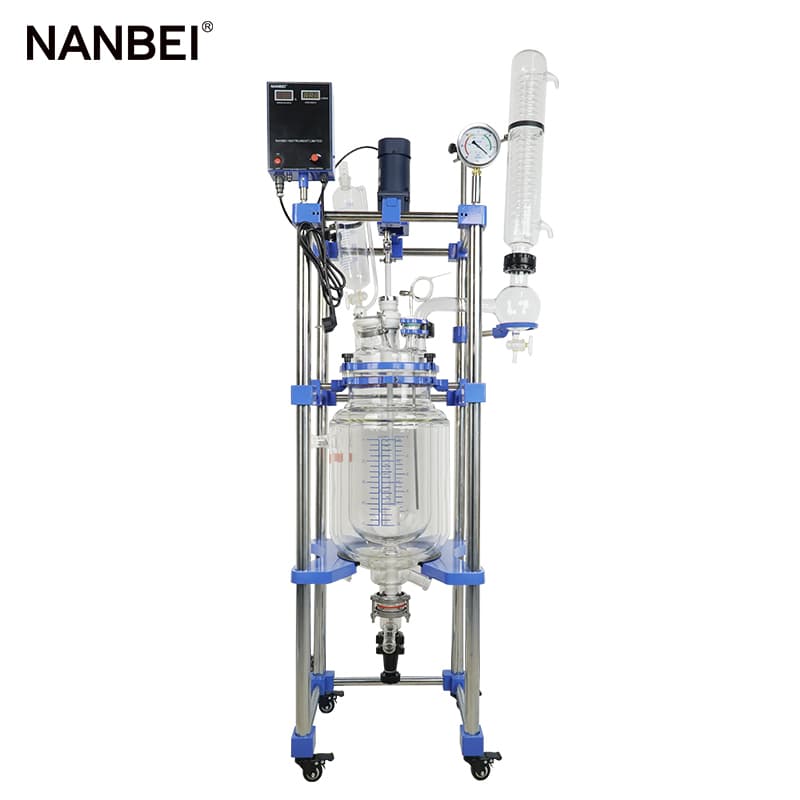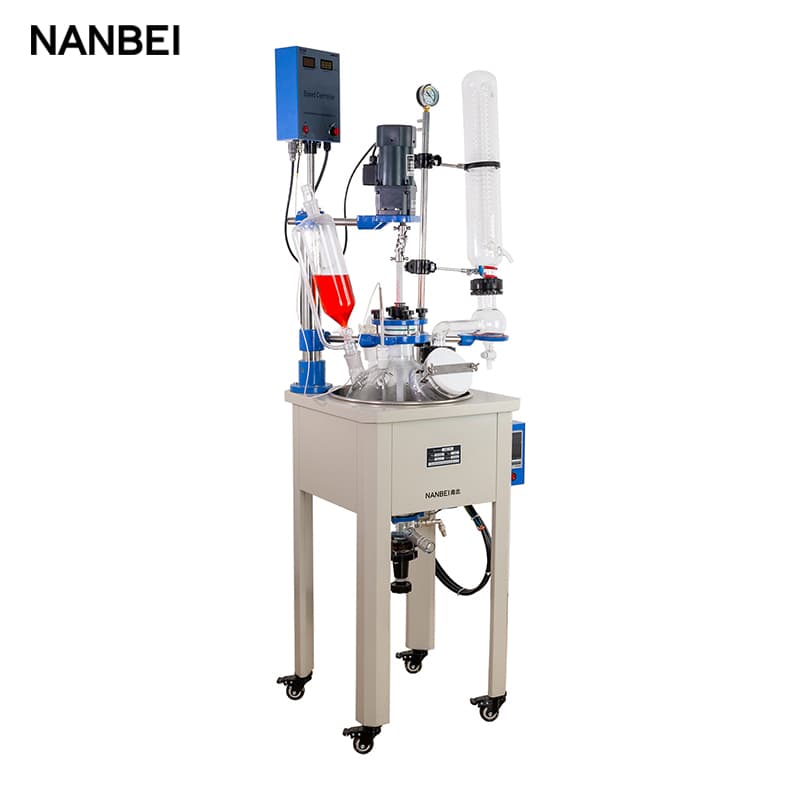 Mobile: +86 15890068607
Mobile: +86 15890068607
 Email: bella@nanbei-china.com
Email: bella@nanbei-china.com
 Mobile: +86 15890068607
Mobile: +86 15890068607
 Email: bella@nanbei-china.com
Email: bella@nanbei-china.com
Glass reactors are mainly used in experiments and production in chemistry, fine chemicals, biopharmaceutical new material synthesis, etc. It can be used with circulating water vacuum pump, low-temperature coolant circulating pump, and circulating oil bath pot to form a system device, or used for pilot production.

About 60% of the damages to glass reactor kettle is caused by corrosion, so when selecting valves, we must first pay attention to the scientific selection of materials. So, how to choose the valve for glass reactor according to the characteristics of the corrosive medium?
1. Sulfuric acid: Fluoroplastic has good sulfuric acid resistance, and the use of fluorine-lined valve is a more economical choice.
2. Acetic acid: Stainless steel is an excellent acetic acid-resistant material, and 316 stainless steel can also be used for high temperature and dilute acetic acid vapor. For high temperature and high concentration acetic acid or other corrosive media with demanding requirements, high alloy stainless steel valve or fluoroplastic valve can be selected.
3. Hydrochloric acid: Most non-metallic materials have good corrosion resistance to hydrochloric acid, so lined rubber valve and plastic valve are better choices.
4. Nitric acid: Stainless steel is a widely used nitric acid-resistant material, and has good corrosion resistance to all concentrations of nitric acid at room temperature. For high temperature nitric acid, titanium and titanium alloy materials are usually used.

The selection of glass reactor valves is very important. Purchasers should make the correct choice based on the characteristics of the corrosive medium to ensure the normal service life of glass reactor vessel and reduce accidents and economic losses.
* HOT ARTICLE
Welcome to the official website of the Nanbei Group *